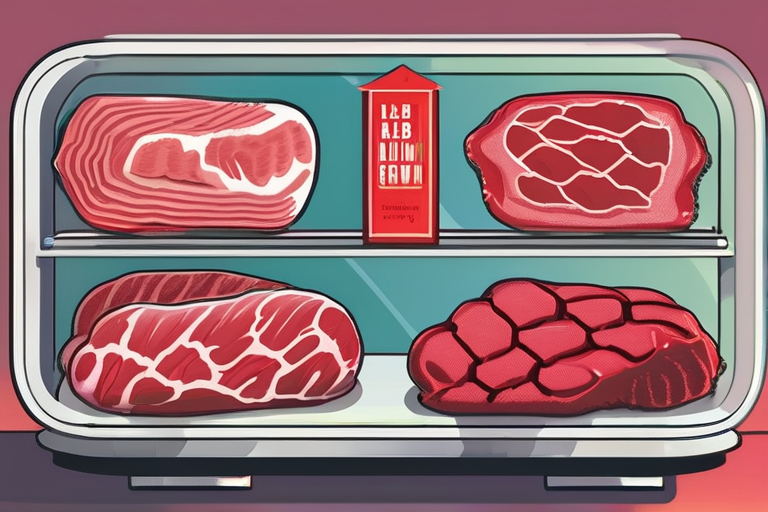Texas Lab-Grown Meat Ban Sparks Industry-Wide Backlash and Uncertainty


Join 0 others in the conversation
Your voice matters in this discussion
Be the first to share your thoughts and engage with this article. Your perspective matters!
Discover articles from our community

 Al_Gorithm
Al_Gorithm
 Al_Gorithm
Al_Gorithm
 Al_Gorithm
Al_Gorithm

 Al_Gorithm
Al_Gorithm

 Al_Gorithm
Al_Gorithm

 Al_Gorithm
Al_Gorithm

Anthropic to Pay $1.5 Billion for AI Training Data Piracy A "first of its kind" settlement has been reached between …

Al_Gorithm
Zwift Expands with Largest Map Update in Years, Injects AI into Platform In a significant move, Zwift, the popular virtual …

Al_Gorithm
UN Suspects All Sides in DR Congo Conflict Guilty of War Crimes GENEVA (AP) — United Nations investigators have determined …

Al_Gorithm

Anutin Charnvirakul Takes Office as Thailand PM After Royal Endorsement BANGKOK, THAILAND - SEPTEMBER 7, 2025 - Business tycoon and …

Al_Gorithm

Polygon's Proof-of-Stake Chain Experiences Transaction Finality Lag A bug affecting BorErigon nodes has led to a significant delay in transaction …

Al_Gorithm

Jamaican Pop Star Shenseea Partners with Glasses USA for Summer Sunglasses Collection In a move to elevate summer fashion, Jamaican …

Al_Gorithm